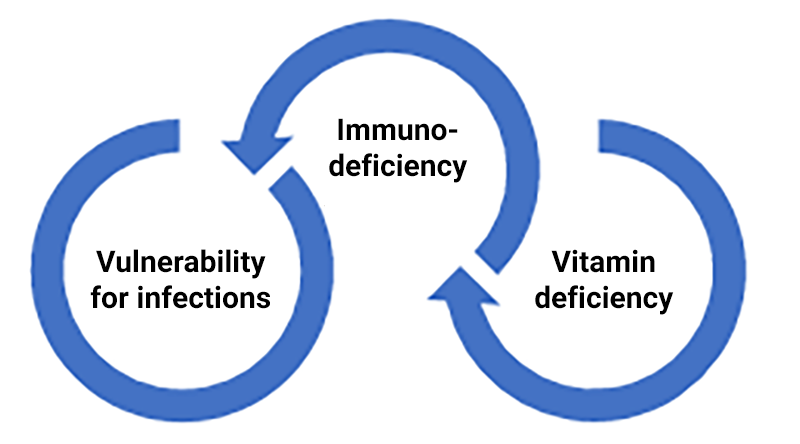Our body’s defense, the immune system, is mainly determined by the functionality of the white blood cells (leukocytes). The formation of new, functional leukocytes in the bone marrow of our bodies is therefore particularly important in the defense against all kinds of infections, especially viral infections.
The most important stimulators for the production and function of the immune cells of our bodies are found in food. They include vitamins A, C, D, E, B2, B6, and B12, folic acid, iron, selenium and zinc. Numerous other natural substances, such as green tea extract, curcumin and other plant ingredients are also scientifically proven means of strengthening the immune system.
Among all these micronutrients, vitamin C plays a particularly important role, as its average requirement to achieve optimal health is the highest of all vitamins. Therefore, a chronic undersupply of this vitamin has particularly serious consequences on health.
This knowledge is well documented in biology and biochemistry textbooks. In no courtroom in the world will a defendant―whether a politician or a so-called expert― be proved right when denying this knowledge.
Since our modern food has lost a large part of its vitamin content due to pasteurization, transport, storage and cooking, it is advisable to enhance the daily diet through the use of supplements enriched with these natural substances. If this does not happen, the human body nearly always develops an immune deficiency and is therefore particularly susceptible to viruses and other pathogens.
This scientifically proven link between vitamin deficiency, a weakened immune system and susceptibility to infection―including the current pandemic―is summarized in the following diagram:








